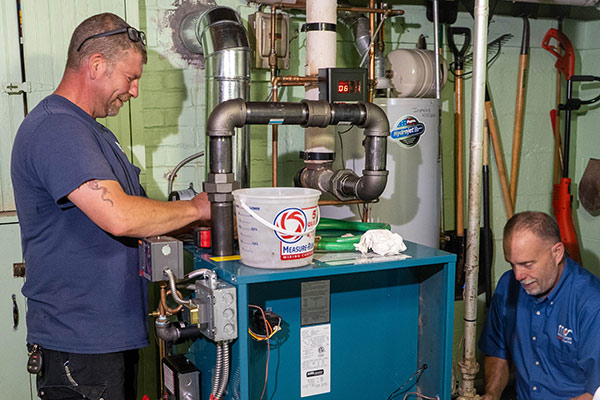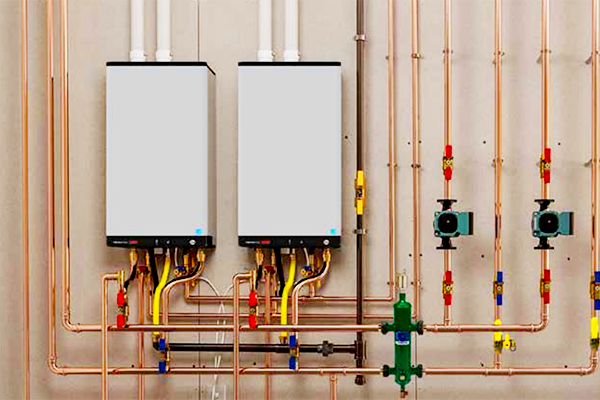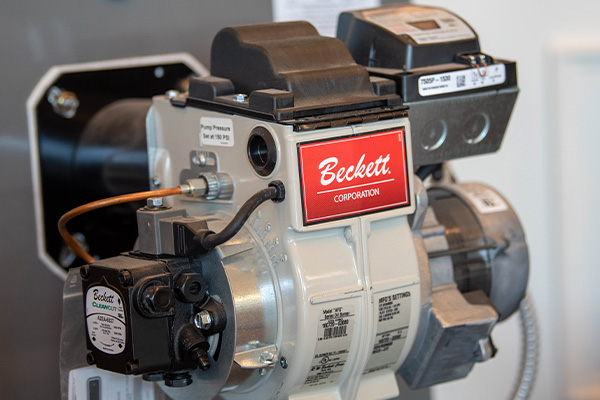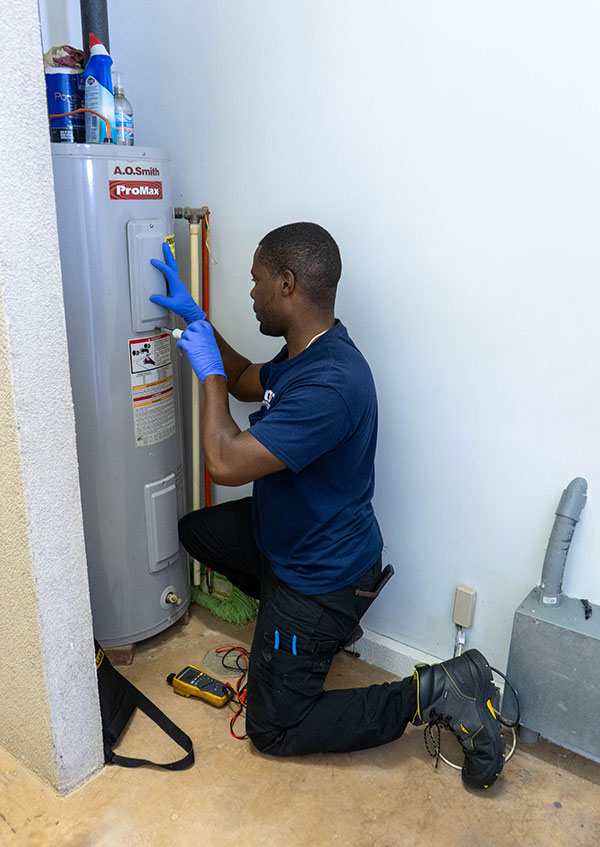Budget-Friendly Boiler Installation & Upgrades
When you need boiler repairs or installation at your home or business, turn to the trusted local expertise of Modern Comfort.
Don’t let your large home or commercial building go without heat. Ensure your boiler system is in top condition for ultimate comfort.
Choosing reliable technicians from Modern Comfort ensures the job is done right, providing peace of mind and continuous hot water for baths, showers, cooking, laundry, and other daily tasks.
Boiler Brands We Install and Upgrade:
- Rheem
- Burnham
- New Yorker
- EFM
- Solaia
- Energy Kinetics
- Crown
- Solaia
- Thermo-Dynamics
- Peerless Boilers
- Bosch
- Williamson

Contact Us For All Of Your Boiler Installation and Upgrades Needs
Boiler Upgrades & Replacement
Wondering when you last gave your boiler a modern makeover? Aging boilers often bring inefficiency, higher costs, and a host of household hassles. Opting for an upgrade is a smart move, presenting numerous advantages. Explore these seven compelling reasons to bring your boiler into the future.
Upgrade Your Boiler, Enjoy Multiple Perks: Short and Sweet
- Lower Bills: Slash hundreds off your annual bill with a more efficient new boiler, especially in times of rising heating costs.
- Save on Repairs: New boilers reduce breakdowns, sparing you frequent repair expenses, often backed by extended guarantees.
- Peaceful Operation: Advanced designs make modern boilers operate quietly, eliminating disruptive noise in your home.
- Space Efficiency: Compact new boilers allow flexible installations, freeing up valuable space for alternative use in your home.
- Enhanced Comfort: Modern boilers offer effective heating with precise temperature controls, ensuring consistent warmth in every room.
- Peace of Mind: Enjoy tranquility with a new boiler that's less likely to break down at inconvenient times, providing reliability when needed.
- Eco-Friendly: Reduce your carbon footprint by opting for a modern, fuel-efficient boiler that contributes to a greener environment.

Boiler Replacement Costs
Boiler Replacement Costs Demystified: Revamp Comfort Wisely
The cost of replacing a boiler typically ranges from $3,500 to $8,500, depending on factors like brand, size, and type. On average, homeowners should budget around $6,000 for a comprehensive new boiler installation, covering labor and materials.
Opting for an energy-efficient oil boiler increases the investment significantly, with a starting price of at least $12,500. It's crucial to be aware that additional expenses may arise if extra piping or gas line work is required. However, a straightforward swap from an old boiler to a standard one might incur a more modest cost of around $1,100.
While low-end boilers may seem budget-friendly initially, investing in higher-end models with superior energy ratings proves to be a wiser choice, offering better long-term value by curbing overall energy consumption.

What To Consider When Upgrading A Boiler?
A Quick Guide: Boiler Replacement
- When opting for a boiler replacement, several crucial factors come into play to ensure the ideal selection for your heating and hot water needs.
1. Energy Source: Assess the available energy sources. Gas boilers are cost-effective, while oil or electric heating options may be considered if gas isn't available.
2. Boiler Type: Choose between conventional, system, and combi boilers based on property size and hot water usage. Understand the distinctions and match them to your specific requirements.
- Conventional Boiler: Suited for larger homes with high hot water demand, featuring a separate cylinder and storage tank.
- System Boiler: Ideal for homes with multiple bathrooms, operating similarly to a conventional boiler but drawing water directly from the mains.
- Combi Boiler: Compact and space-efficient, providing hot water on demand without a separate cylinder.
3. Space Availability: Assess the available space for installation. Conventional and system boilers, requiring additional storage, are suitable for larger homes, while combi boilers are space-efficient.
4. Number of Bathrooms: Consider the quantity of bathrooms and showers in your home to determine hot water needs. Conventional boilers are suitable for multiple taps and showers simultaneously.
5. Water Pressure: Check the water pressure in your area. Conventional boilers are ideal for low water pressure, while combi boilers suit areas with good water pressure.
6. Boiler Flow Rate: Understand the boiler flow rate, which indicates water capacity and speed. Align it with your property's size and mains pressure for optimal performance.
7. Flue System: Ensure compatibility with your existing flue system when selecting a boiler. Different boilers may require specific flue configurations.
Make informed decisions to enhance efficiency and meet your heating demands effectively.

